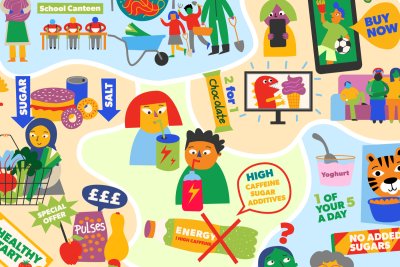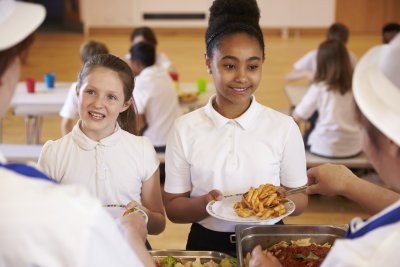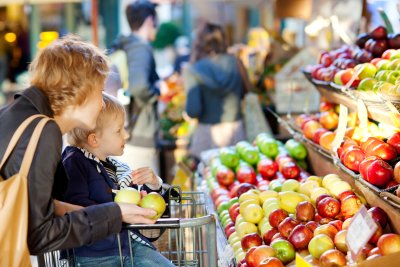News • Children's Food Campaign
GCSE Cooking and Nutrition consultation response
This consultation response from Children’s Food Campaign (CFC) has been compiled based on discussions at the CFC working party meeting in October 2014, with representatives from the following organisations: Food for Life Partnership, National Union of Teachers, British Dietetic Association, British Dental Association, Cancer Research UK, British Heart Foundation, Consensus Action on Salt and Health, Action on Sugar, Coeliac UK, Royal Academy of Culinary Arts, Eagle Solutions Services and Netmums. We have also received subsequent contributions from the National Consumer Federation and School Food Matters.
Our key points:
Yes, we are broadly supportive of the new GCSE Cooking and Nutrition, though we believe that some improvements are needed to the subject content.
- We welcome to convergence between nutrition and science and sustainability, sensory engagement and practical cooking skills - bringing these altogether is a positive development.
- We believe there is a case for including the word 'Food' within the subject title.
- The inclusion of food provenance is very much welcomed, but we believe the content should go further - to use the words “fresh, sustainable, and locally-sourced” (as in the School Food Standards) to ensure that these concepts are properly covered.
- We would recommend the inclusion of quality assurance in relation to food provenance; and also that the impact of food security on the environment should include consideration of fair trade, food miles and food poverty.
- Food growing should be added to the food provenance content, to support the learning outcome on how foods are grown and to provide practical and assessable skills in both the growing and the harvesting of food. The findings of the Food Growing in Schools Taskforce and its recommendations (which have yet to be implemented by Defra or DfE) add weight to this addition.
- Food waste should be added to the food choice content, with a learning outcome of: being economical with foods and imaginative use of leftovers to reduce waste.
- The societal context of our food environments and the policy and political levers that (could) shape them, along with contemporary debate about food policy and public health, should be part of the food choice content and be added to the learning outcomes.
- There should be a connection between the new school food standards and the nutrition education provided – so students learn not just about the EatWell Plate, but about the standards that govern what food is (or should be) served in their school and the rationale behind them.
We also have three practical concerns about the provision of this GCSE which we believe need to be addressed:
Cost of ingredients – schools should provide and pay for the ingredients, not pupils. This especially applies to work done in the classroom and not taken home to eat; but really should be the case for all ingredients. Otherwise cost might prove to be a deterrent to selecting this subject and/or disadvantage pupils during the programme of study itself. In other subjects where materials are used (such as art or science), the costs are covered by the school. It should be the same for this GCSE.
Facilities and Staff - functional (and preferably well-equipped) facilities and well-trained teachers and technicians are the necessary prerequisites for any course, and this GCSE is no different. We are concerned that there is not currently the pool of food-specialist teachers or the equipment in schools to give students who would take this course the best chance of thriving. Thus we strongly urge the Government to invest in training and CPD for those who will be expected to deliver this GCSE, as well as provide a budget for schools to bid for improvement works – similar to how funds were made available and distributed to schools to help them adapt for the provision of Universal Infant Free School Meals. Any investment in teacher training and provision for the GSCE would also benefit the teaching of the subject at Key Stage 1-3, where it has just become a core part pf the Design and Technology curriculum, and vice-versa.
Guidance - should be produced and distributed to teachers on how to evaluate commercially produced curricula materials and sponsored equipment and educational trips. Such guidance – especially around companies and brands associated with products that undermine healthy lifestyle messages – is very important so that schools and especially teachers can make informed decisions. Yet our recent survey of NUT members found an almost complete lack of awareness of guidance published by either the DfE, teaching unions or schools themselves; but a big demand for such guidance. This type of guidance was also recommended in the Food Growing in Schools Taskforce Report.
Published Monday 24 November 2014
Children's Food Campaign: Better food and food teaching for children in schools, and protection of children from junk food marketing are the aims of Sustain's high-profile Children's Food Campaign. We also want clear food labelling that can be understood by everyone, including children.




